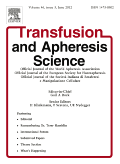
TRANSFUSION AND APHERESIS SCIENCE
Scope & Guideline
Illuminating the Path of Apheresis and Transfusion Science
Introduction
Aims and Scopes
- Transfusion Medicine:
Focuses on the efficacy, safety, and clinical outcomes associated with blood transfusions, including studies on transfusion reactions, management of blood components, and the impact of transfusion on various patient populations. - Apheresis Techniques:
Explores advancements in apheresis technology, including therapeutic plasma exchange and stem cell collection, with an emphasis on optimizing protocols and improving patient outcomes. - Immunohematology:
Investigates immunological aspects of blood transfusion, including alloimmunization, blood group antigens, and the genetic factors influencing transfusion compatibility and patient responses. - Clinical Applications:
Provides insights into clinical practices and guidelines for managing patients requiring transfusion or apheresis, addressing specific conditions such as hemophilia, sickle cell disease, and other hematological disorders. - Emerging Therapies and Technologies:
Highlights innovative approaches to transfusion and apheresis, including the use of convalescent plasma, gene therapies, and novel anticoagulant treatments.
Trending and Emerging
- COVID-19 Related Research:
Numerous publications focus on the role of convalescent plasma and other blood products in treating COVID-19, indicating a significant trend towards understanding the implications of pandemics on transfusion practices. - Personalized Medicine in Transfusion:
An increasing interest in personalized approaches to transfusion and apheresis, including the use of genetic information to guide therapy and optimize outcomes for individual patients. - Artificial Intelligence and Automation:
Emerging research is focusing on the application of artificial intelligence and automation in transfusion medicine, aiming to enhance efficiency, safety, and decision-making in clinical practice. - Ethical and Policy Considerations:
A growing body of work addresses the ethical implications and policy considerations surrounding blood donation, transfusion practices, and patient consent, reflecting an increased awareness of social responsibility in healthcare. - Innovations in Apheresis Techniques:
An uptick in studies related to novel apheresis techniques and their applications in various medical conditions, suggesting a trend towards more specialized and effective treatment modalities.
Declining or Waning
- Traditional Transfusion Practices:
There is a noticeable decrease in studies centered around conventional blood transfusion practices as research increasingly emphasizes evidence-based practices and innovative solutions to transfusion-related challenges. - Infectious Disease Transmission:
Research on infectious disease transmission through blood transfusion has diminished as advancements in screening and pathogen reduction technologies have led to improved safety measures. - Surgical Transfusion Protocols:
Fewer articles are appearing on transfusion protocols specific to surgical settings, possibly due to evolving practices that focus more on patient blood management strategies rather than traditional protocols. - Non-therapeutic Apheresis Applications:
Research exploring non-therapeutic applications of apheresis has declined, as the focus shifts towards more clinically relevant uses, such as therapeutic plasma exchange and stem cell collection.
Similar Journals
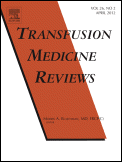
TRANSFUSION MEDICINE REVIEWS
Shaping the future of hematology and biochemistry.TRANSFUSION MEDICINE REVIEWS is a prestigious journal dedicated to the advanced study of transfusion medicine and its related fields, published by W B SAUNDERS CO-ELSEVIER INC. With an outstanding reputation, it boasts an impressive impact factor and consistently ranks in the top quartile (Q1) across multiple categories, including Biochemistry (Medical), Clinical Biochemistry, and Hematology. Researchers will find valuable insights through its extensive coverage of pertinent topics, with a focus on the integration of clinical practices and laboratory science. While the journal does not currently offer open access, its content remains accessible through various institutional subscriptions, ensuring that vital information is available to the global scientific community. With a continuous publication history from 1987 to 2024, TRANSFUSION MEDICINE REVIEWS serves as a vital resource for academics, healthcare professionals, and students who seek to stay abreast of the latest research findings and clinical practices in transfusion medicine.
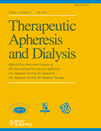
THERAPEUTIC APHERESIS AND DIALYSIS
Advancing the frontiers of hematology and nephrology.THERAPEUTIC APHERESIS AND DIALYSIS is an esteemed journal published by Wiley, focusing on the fields of hematology and nephrology. Since its inception in 2003, the journal has provided a dedicated platform for research and advancements in therapeutic apheresis and dialysis methodologies, offering valuable insights for clinicians and researchers alike. With an ISSN of 1744-9979 and an E-ISSN of 1744-9987, the journal has established itself within Q3 in both the hematology and nephrology categories. Its Scopus rankings place it at #44 in nephrology and #79 in hematology, indicating its growing influence in these critical areas of medical research. Although it does not currently offer open access, THERAPEUTIC APHERESIS AND DIALYSIS remains a vital resource for professionals aiming to stay at the forefront of innovations and practices through 2024 and beyond. Researchers, healthcare professionals, and students are encouraged to engage with the latest findings and discussions presented within its pages, solidifying its role in enhancing patient care and therapeutic strategies.
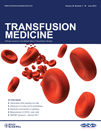
TRANSFUSION MEDICINE
Transforming knowledge into practice in transfusion medicine.TRANSFUSION MEDICINE, ISSN 0958-7578, is a prestigious journal published by Wiley that focuses on advancing the field of transfusion medicine. Since its inception in 1991, the journal has provided a vital platform for the dissemination of innovative research findings, clinical practices, and policy developments impacting blood transfusion and hematology. With an impressive repository of peer-reviewed articles, TRANSFUSION MEDICINE aims to facilitate the exchange of knowledge among hematologists, transfusion practitioners, and related professionals to enhance patient outcomes. Currently positioned in the third quartile (Q3) of Hematology in the 2023 category rankings, the journal ranks #83 out of 137 in the Scopus database, highlighting its relevance and influence in the field, albeit with a 39th percentile ranking. Although it does not offer open access options, the dissemination of critical findings continues to support the advancement of transfusion practices on a global scale. Researchers, professionals, and students alike are encouraged to engage with the valuable insights published within this journal as it converges to 2024 and beyond.
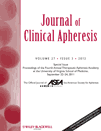
JOURNAL OF CLINICAL APHERESIS
Elevating Clinical Outcomes: The Apheresis Research HubJOURNAL OF CLINICAL APHERESIS, published by WILEY, serves as a premier platform for disseminating cutting-edge research in the specialized field of apheresis and its clinical applications. Established in 1982, this journal has been a vital resource for healthcare professionals, researchers, and students, focusing on innovative techniques, advancements in clinical practices, and the therapeutic use of apheresis in hematology and other medical disciplines. With an ISSN of 0733-2459 and E-ISSN 1098-1101, the journal is indexed in various databases, reflecting its solid academic reputation. Currently positioned in the Q3 quartile rankings for both Hematology and Miscellaneous Medicine categories, it offers insightful views into evolving methodologies and case studies that significantly impact patient care. Despite not being open access, the journal remains highly regarded within its community, ensuring that essential findings reach those dedicated to improving clinical outcomes in apheresis practices. Researchers and healthcare professionals are encouraged to engage with its comprehensive studies and foster further advancements in the field.
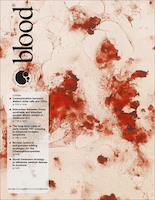
BLOOD
Shaping the Future of Hematological Discovery.BLOOD, published by the American Society of Hematology, is a premier peer-reviewed journal in the fields of Biochemistry, Cell Biology, Hematology, and Immunology. With an impressive impact factor and ranking in the top quartiles (Q1) across multiple disciplines, BLOOD is essential reading for researchers and professionals seeking to stay updated on the latest advancements in hematology and related fields. The journal has been a cornerstone of hematological research since its inception in 1946, providing a platform for rigorous scientific inquiry and discourse. Its commitment to publishing high-quality original research, comprehensive reviews, and insightful editorials makes it a vital resource for students, practitioners, and scientists alike. By offering exceptional access to influential publications, BLOOD continues to shape the future of hematology and enhance understanding of blood-related disorders, marking its vital role in advancing both basic and clinical research.
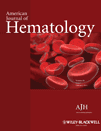
AMERICAN JOURNAL OF HEMATOLOGY
Elevating Knowledge in Blood Health and TreatmentAmerican Journal of Hematology, published by Wiley, stands as a premier outlet for the dissemination of cutting-edge research in the field of hematology. With a commendable impact factor and ranked #9 out of 137 in the Scopus medicine category, this journal has established a robust presence since its inception in 1976. Operating in the Q1 quartile for hematology, it serves as a crucial resource for researchers, clinicians, and students dedicated to understanding blood disorders and advancing treatment methodologies. While the journal does not currently offer open access options, it remains highly regarded for its rigorous peer-review process and impactful contributions to the scientific community. With coverage extending into 2024, the American Journal of Hematology is committed to fostering innovation and collaboration within the hematological sciences.
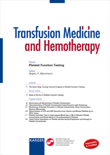
TRANSFUSION MEDICINE AND HEMOTHERAPY
Pioneering discoveries in transfusion medicine since 1973.TRANSFUSION MEDICINE AND HEMOTHERAPY, published by KARGER, is a prominent journal dedicated to advancing the fields of hematology and transfusion medicine. With an ISSN of 1660-3796 and E-ISSN 1660-3818, this esteemed journal has been a valuable resource for researchers and clinicians since its inception in 1973, with significant publication phases continuing into 2024. It currently holds a Q2 ranking in Hematology and a Q3 ranking in Immunology and Allergy, reflecting its impact and relevance in these critical fields. The journal features original articles, reviews, and clinical studies, presenting cutting-edge research that aids in the development of effective therapies and enhances patient care. Open access options are available, ensuring that crucial findings are accessible to a broad audience. As an important platform for dialogue and advancement in transfusion science, TRANSFUSION MEDICINE AND HEMOTHERAPY supports the global health community's efforts to improve treatment outcomes and foster innovation in medical practices.
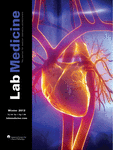
AMERICAN JOURNAL OF CLINICAL PATHOLOGY
Exploring the Depths of Pathological ScienceThe American Journal of Clinical Pathology, published by Oxford University Press Inc, stands as a vital resource in the fields of pathology and clinical medicine. With a rich history dating back to 1945 and an impressive impact factor reflected in its Q1 ranking in Pathology and Forensic Medicine, this journal serves as a cornerstone for researchers and professionals seeking to advance their knowledge and practice. Covering a breadth of topics within the discipline, it is recognized in 2023 as ranked #24 out of 208 in its category, highlighting its esteemed reputation within the scientific community. Although the journal does not currently offer open access, its rigorous peer-reviewed articles and cutting-edge research make it an essential addition to any academic or clinical library. The ISSN for print version is 0002-9173, with an E-ISSN of 1943-7722 available for digital access. Researchers, students, and practitioners alike will benefit from its comprehensive scope and commitment to disseminating high-quality scientific inquiry.

BLOOD REVIEWS
Unveiling the latest in blood research and treatment.BLOOD REVIEWS is a highly regarded journal published by Churchill Livingstone, specializing in the fields of Hematology and Oncology. With an impressive Q1 ranking in both disciplines and placing in the top 10% of its peer categories according to Scopus metrics, it provides an essential platform for the dissemination of cutting-edge research and reviews pertaining to blood disorders and cancer treatment. Since its inception in 1987 and continuing through 2024, the journal has established itself as a cornerstone for healthcare professionals, researchers, and students who seek to advance their understanding of hematologic and oncologic topics. While not an open-access journal, BLOOD REVIEWS retains a reputation for delivering high-quality, peer-reviewed articles that foster dialogue and innovation within the scientific community. For those in the United States and beyond, the journal serves as a vital resource, housed at the Journal Production Department in Edinburgh, Scotland, ensuring accessibility and a global reach in its critical academic contributions.
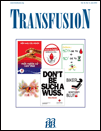
TRANSFUSION
Advancing the Science of Blood and BeyondTRANSFUSION is a prestigious peer-reviewed journal published by WILEY, dedicated to advancing the field of hematology and transfusion medicine. With an ISSN of 0041-1132 and an E-ISSN of 1537-2995, this journal serves as a vital resource for researchers and professionals alike, delivering high-quality studies and reviews that impact clinical practice and blood management strategies. The journal enjoys a strong reputation, evidenced by its impressive Q1 ranking in hematology and Q2 in both immunology and allergy as of 2023. Covering foundational aspects from 1958 to 2024, TRANSFUSION not only provides valuable insights but also fosters collaboration and innovation in understanding the complexities of blood donation, transfusion practices, and immunological responses. With its significant contributions to the scientific community, this journal is essential for those seeking to stay at the forefront of research and advancements in transfusion science.